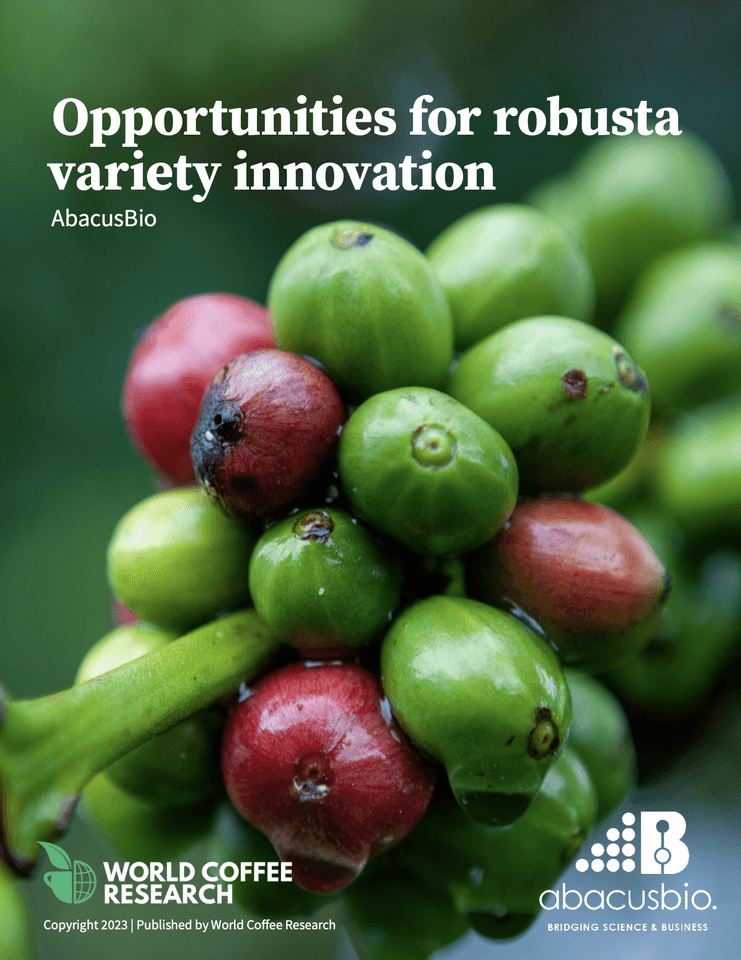
Opportunities for robusta variety innovation
Examining current and future trends for robusta supply and demand, as well as existing resources for genetic improvement
Background
This white paper, produced by leading genetic-improvement consultants at AbacusBio in conjunction with World Coffee Research, examines current and likely future trends for robusta supply and demand, as well as existing resources given to robusta genetic improvement. The purpose of this paper is to examine possible roles for a collaborative, global robusta breeding program.
Key takeaways
Below are the key takeaways of this paper:
- Taking into account rising consumption trends and the negative impact of the climate crisis on production, the world may face robusta shortages in 2040 of up to 35 million bags.
- Production of robusta has become increasingly concentrated among a small group of six countries, which are responsible for 95% of output by volume, while other countries have decreased production. This concentration represents meaningful production risk and potential further exposure to the impacts of climate change.
- As robusta is increasingly being substituted for arabica, the supply of higher-quality robusta must also increase, or else the perceived quality of blends will decrease and may face consumer rejection.
- Globally, current levels of investment in robusta research and breeding are not sufficient to meet projected shortages or the evolving quality needs of the market.
- Roasters are predominantly interested in securing the continuous availability of robusta as a lower-priced ingredient without declining quality, while farmers are primarily focused on improving yield, drought tolerance, and disease resistance, along with quality as a pathway to improved prices. Driving innovation to produce gains in yield (and other yield-impacting traits like climate resilience) is likely to be a win for farmers and roasters.
- Overall, existing robusta breeding programs are positioning themselves for innovation. A global, collaborative effort aimed at enhancing interaction and sharing of genetic resources could lead to faster advancement of breeding programs.
- Different strategies of support need to be employed in different countries, to aid in variety innovation and release.
Contributors
- Tom Kirk, AbacusBio
- Dr. Ireti Balogun, AbacusBio
- Dr. Thiago Oliviera, AbacusBio
- Megan Vasko, AbacusBio
- Dr. Tim Byrne, AbacusBio
- Dr. Tania Humphrey, World Coffee Research
- Hanna Neuschwander, World Coffee Research